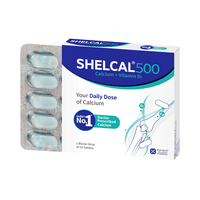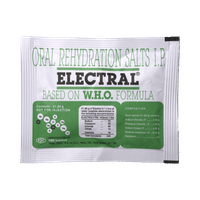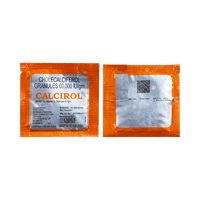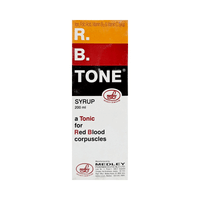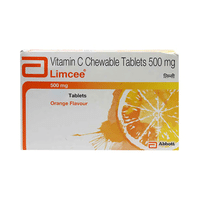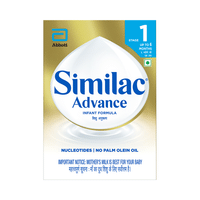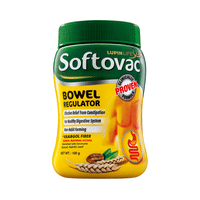Rs.69for 1 tube(s) (15 gm Cream each)
food interaction for Disederm
alcohol interaction for Disederm
pregnancy interaction for Disederm
lactation interaction for Disederm
medicine interaction for Disederm
food
alcohol
pregnancy
lactation
medicine
No interaction found/established
No interaction found/established
The safety of Disederm Cream during pregnancy has not been established. There are no adequate and well-controlled studies in pregnant women, and animal data on reproductive toxicity are insufficient. Your doctor will weigh the benefits and any potential risks before prescribing.
CONSULT YOUR DOCTOR
Disederm Cream may be safe to use during breastfeeding. Animal studies have shown low or no adverse effects to the developing baby; however, there are limited human studies.
SAFE IF PRESCRIBED
No interaction found/established
SALT INFORMATION FOR Disederm
Ofloxacin(0.75% w/w)
Uses
Ofloxacin is used in the treatment of bacterial infections. It is also used in infections of urinary tract, gastrointestinal tract, female genital organ, skin & soft tissues and lungs (pneumonia).
How it works
Ofloxacin is an antibiotic. It works by stopping the action of a bacterial enzyme called DNA-gyrase. This prevents the bacterial cells from dividing and repairing, thereby killing them.
Common side effects
Nausea, Headache, Dizziness, Abdominal pain, Itching, Fungal infection, Agitation, Sleep disorder, Insomnia (difficulty in sleeping), Vertigo, Cough, Rash, Anaphylactic reaction, Anxiety, Confusion, Nightmares, Sleepiness, Paresthesia (tingling or pricking sensation), Breathlessness, Bronchospasm, Increased liver enzymes, Genital itching, Vaginal inflammation, Phlebitis, Injection site reactions (pain, swelling, redness), Indigestion, Cognitive impairment, Depression, Abnormal dreams, Eye irritation, Joint pain, Muscle pain, Ringing in ear, Photophobia, Fast heart rate, Hypotension (low blood pressure), Increased creatinine level in blood, Photosensitivity, Inflammation of tendons, Tendon rupture, Psychotic disorder, Liver dysfunction, Pseudomembranous colitis
Tinidazole(2% w/w)
Uses
Tinidazole is used in the treatment of bacterial infections and parasitic infections. It is used in infections of the brain, reproductive system, gastrointestinal tract, skin, vagina, and other areas of the body.
How it works
Tinidazole is an antibiotic. It kills the bacteria and other microorganisms that cause infections by damaging their DNA.
Common side effects
Headache, Nausea, Dizziness, Breathlessness, Vomiting, Fatigue, Diarrhea, Constipation, Stomatitis (Inflammation of the mouth), Decreased appetite, Dyspepsia, Flatulence, Urinary tract infection, Discomfort when urinating, Vaginal odour, Vulvovaginal discomfort, Pelvic pain, Urticaria, Palpitations, Vaginal discharge, Candida overgrowth, Joint pain, Muscle pain, Joint inflammation, Bronchospasm, Coma, Depression, Furry tongue, Pharyngitis, Low blood platelets
Terbinafine(1% w/w)
Uses
Terbinafine is used in the treatment of fungal infections, severe fungal infections and dandruff.
How it works
Terbinafine is an antifungal medication. It kills and stops the growth of the fungi by destroying its cell membrane, thereby treating your skin infection.
Common side effects
Headache, Diarrhea, Rash, Itching, Taste change, Nausea, Abdominal pain, Decreased appetite, Decreased white blood cell count (neutrophils), Erythema (skin redness), Increased liver enzymes, Joint pain, Muscle pain, Urticaria, Dyspepsia, Skin exfoliation, Weight loss, Skin lesion, Scab, Skin disorder, Pigmentation disorders, Burning sensation, Application site pain, Liver failure, Agranulocytosis (deficiency of granulocytes in the blood), Low blood platelets, Severe skin reactions, Eye irritation, Dry skin, Contact dermatitis
Clobetasol(0.05% w/w)
Uses
Clobetasol is used in the treatment of allergic skin conditions.
How it works
Clobetasol is a steroid. It works by blocking the production of certain chemical messengers that make the skin red, swollen and itchy.
Common side effects
Skin atrophy, Telangiectasia, Skin irritation, Dry skin, Stretch marks, Cushing syndrome, Suppression of adrenal gland function, Posterior subcapsular cataract, Increased intraocular pressure, Skin rash, Scaling, Induration (hardening of a normally soft tissue or organ), Lichenification, Exacerbation of psoriasis, Plaque elevation, Excoriation
D-Panthenol(0.05% w/w)
Uses
D-Panthenol is used in the treatment of nutritional deficiencies.
How it works
D-Panthenol provides essential nutrients.
Common side effects
Allergic reaction
SUBSTITUTES FOR Disederm
8 Substitutes
8 Substitutes
Sorted By
 Rs. 65.63save 7% more per gm of Cream
Rs. 65.63save 7% more per gm of Cream Rs. 61.31save 13% more per gm of Cream
Rs. 61.31save 13% more per gm of Cream Rs. 117.89pay 64% more per gm of Cream
Rs. 117.89pay 64% more per gm of Cream Rs. 67.50save 4% more per gm of Cream
Rs. 67.50save 4% more per gm of Cream Rs. 63.75save 9% more per gm of Cream
Rs. 63.75save 9% more per gm of Cream
Expert advice FOR Disederm
- Your doctor has prescribed Ofloxacin to cure your infection and improve symptoms.
- Do not skip any doses and finish the full course of treatment even if you feel better.
- Discontinue Ofloxacin and inform your doctor immediately if you get a rash, itchy skin, swelling of face and mouth, or have difficulty in breathing.
- Diarrhea may occur as a side effect but should stop when your course is complete. Inform your doctor if it doesn't stop or if you find blood in your stools.
- Notify your doctor if you feel pain in your tendons, numbness, or tingling sensations.
- Inform your doctor if you are pregnant or planning to conceive or breastfeeding.
- Your doctor has prescribed Ofloxacin to cure your infection and improve symptoms.
- Do not skip any doses and finish the full course of treatment even if you feel better.
- Discontinue Ofloxacin and inform your doctor immediately if you get a rash, itchy skin, swelling of face and mouth, or have difficulty in breathing.
- Diarrhea may occur as a side effect but should stop when your course is complete. Inform your doctor if it doesn't stop or if you find blood in your stools.
- Notify your doctor if you feel pain in your tendons, numbness, or tingling sensations.
- Inform your doctor if you are pregnant or planning to conceive or breastfeeding.
Frequently asked questions FOR Disederm
Ofloxacin
Q. Can the use of Ofloxacin cause diarrhea?
Yes, the use of Ofloxacin can cause diarrhea. It is an antibiotic which kills the harmful bacteria. However, it also affects the helpful bacteria in your stomach or intestine and causes diarrhea. If you are experiencing severe diarrhea, talk to your doctor about it.
Q. Can I stop taking Ofloxacin when I feel better?
No, do not stop taking Ofloxacin and complete the full course of treatment even if you feel better. Your symptoms may improve before the infection is completely cured.
Q. Can the use of Ofloxacin increase the risk of muscle damage?
Yes, use of Ofloxacin is known to increase the risk of muscle damage, commonly in the ankle (achilies tendon). Muscle damage can happen in people of all ages who take Ofloxacin. Inform your doctor if you feel any kind of muscle pain while using this medicine.
Tinidazole
Q. Is Tinidazole effective?
Tinidazole is effective if used in the dose and duration advised by your doctor. Do not stop taking it even if you see improvement in your condition. If you stop using Tinidazole too early, the symptoms may return or worsen.
Q. Should Tinidazole be taken with food?
Yes, Tinidazole should be taken with food. Food helps to reduce the chances of developing side effects such as stomach pain, vomiting, and diarrhea, which you may experience if Tinidazole is taken on an empty stomach. If you have any doubts, consult your doctor.
Q. What if I forget to take a dose of Tinidazole?
If you forget a dose of Tinidazole, take it as soon as you remember. However, if it is almost time for your next dose, skip the missed dose and take the next scheduled dose in the prescribed time. Do not double the dose to make up for the missed one as this may increase the chances of developing side effects.
Terbinafine
Q. Can Terbinafine be safe for use in patients with liver cirrhosis?
Oral intake of Terbinafine is not recommended in patients with chronic or active liver disease. Your doctor may prescribe a liver function test to check whether the liver is functioning effectively or not. This is done because the medicine gets metabolized by liver enzymes and any inefficiency in liver function can lead to increased levels of the medication in the blood, resulting in increased side effects and toxicity. Therefore, it is important to inform your doctor if you have any liver disease or cirrhosis. Also, inform your doctor about the medicines you may be taking as taking Terbinafine with another medicine can lead to liver toxicity and Terbinafine by acting on the liver enzymes can change the levels of other drugs. Your doctor may suggest periodic monitoring (after 4-6 weeks of treatment) of liver function test and make dose adjustments accordingly.
Q. Can I drink tea or coffee while taking Terbinafine?
Caffeinated drinks like tea and coffee should be taken with caution while being on treatment with Terbinafine. Terbinafine decreases the rate of metabolism of caffeine by 19% which is an important constituent of coffee, thereby increasing the levels of caffeine in the blood. This increased levels of caffeine may lead to side effects such as jitteriness, headache, increased heartbeat and restlessness.
Q. How long do I need to take Terbinafine?
The usual duration of treatment for Tinea pedis (fungal infection in the foot), Tinea corporis (ringworms) and Tinea cruris (fungal infection in the groin) is about 2 to 4 weeks. However, the duration may sometimes be extended to 6 weeks. Usually, the duration of treatment for fungal infections of nails varies from 6 to 12 weeks. For fingernail fungal infections, it may take 6 weeks whereas toenail fungal infection may take about 12 weeks to recover. However, the exact duration of the therapy is decided by the doctor depending upon the type of infection, the site of infection, and the patient’s response to the therapy.
Clobetasol
Q. Can Clobetasol be used for a long time?
No, Clobetasol should not be used for a long time. It is generally prescribed for 2 consecutive weeks only. However, the treatment can be longer for chronic (long-term) inflammatory conditions. Consult your physician before using this medication.
Q. Does Clobetasol cause severe skin reactions?
Severe skin reactions are quite rare with Clobetasol. Clobetasol is an anti-inflammatory drug which is used to treat skin diseases, skin reactions and eczemas. However, skin reactions can occur in a person who is hypersensitive to Clobetasol. It is important to leave the affected area open after applying Clobetasol as using occlusive dressings (air- and water-tight dressing) can lead to skin reactions. The medicine may not itself cause a reaction but the added excipients with the medications can lead to a reaction in some cases. Inform your doctor immediately in case you encounter any skin reactions.
Q. Can Clobetasol be used on the face?
No, Clobetasol should not be used on face. Along with that, its use should be avoided in other areas like the axillae (armpits), groin and if there is atrophy (wasting away of tissues) at the treatment site. However, in certain circumstances, the doctor may prescribe Clobetasol only when considered necessary. It should be used only after consultation with your physician. and if possible, the application on face should be limited to a maximum of 5 days.
D-Panthenol
Q. What is D-Panthenol? What is it used for?
D-Panthenol is a synthetic form of water soluble Vitamin B5 (pantothenic acid). This medicine is used as a moisturizer and it also promotes wound healing. If not sure, consult your doctor regarding its use.
Q. How to use D-Panthenol?
Before using D-Panthenol, clean and dry the affected area. Gently and thoroughly massage it into the skin. Be careful not to get the medication in your eyes or mouth. If D-Panthenol gets in your eyes accidentally, wash with plenty of water and call your doctor if your eyes are irritated.
Q. Is D-Panthenol effective?
D-Panthenol is effective if used in the dose and duration advised by your doctor. Do not stop taking it even if you see improvement in your condition. If you stop using D-Panthenol too early, the symptoms may return or worsen.













